by Mingo Garscha
December 2023 sees the top three groups in the European Parliament re-ordered for the first time in four years. In the last month of 2019, the national-conservative ECR was briefly in third place, but this month the other party on the right moves into one of the top positions.
The largest group overall remains the centre-right European People’s Party (EPP), which gained four seats to reach 179, its best result for almost two years. They are followed by the centre-left Progressive Alliance of Socialists and Democrats (S&D), which is unchanged from last month and remains on 141 seats. Renew Europe (RE), the centrist-liberal group, suffered the biggest loss this month. They are expected to lose five seats, their second loss in a row. This leaves them with only 84 seats, their weakest showing since the party was founded. This also means that they are now only the fourth largest group.
Together the three parties, which form an informal coalition in the European Parliament, now have 404 out of 705 seats, a comfortable absolute majority with one seat less than last month.
As implied above, the third largest group is now Identity and Democracy (ID). After overtaking ECR last month, the right-wing group has now also overtaken RE. They gained six seats in our projection and are now on 93 seats, their highest ever. The national-conservative European Conservatives and Reformists (ECR), on the other hand, have lost two seats to 81.
On the left, the Greens/European Free Alliance (G/EFA) are predicted to win 49 seats, two fewer than last month, while the GUE/NGL (LEFT) is predicted to lose another seat, leaving it with 36 seats, a record low for this election period.
The Non-Inscrits (NI) would have two seat less and are now on 52, and the parties not (yet) affiliated are projected to have six seats, an increase of two.
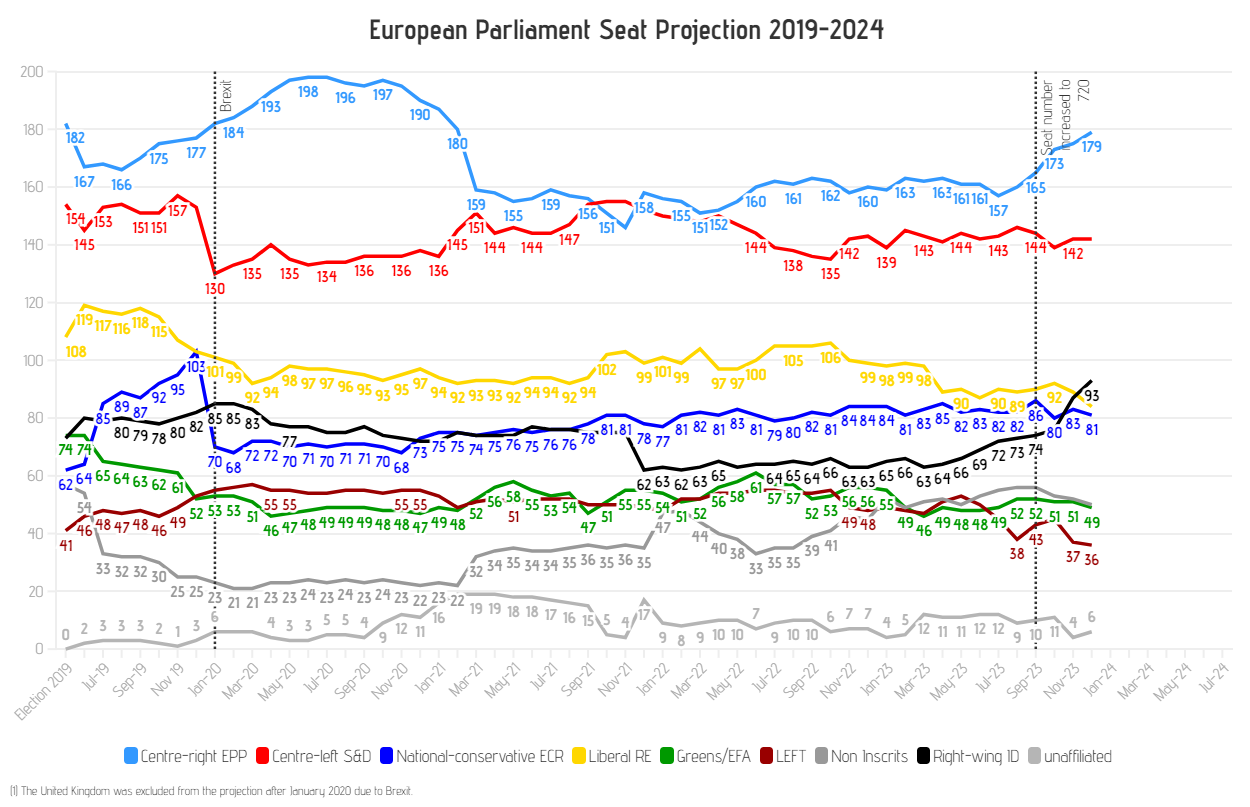
These figures show that, with a 95% confidence interval, the EPP would come first and the S&D second if an election were held this month. Third place is up for grabs for three groups: ID, RE and ECR are too close to call. Places six and seven would be taken by either NI or G/EFA, as both are also projected at similar levels. The eighth largest group would be LEFT, and the smallest of all would be the non-affiliated parties, which are currently not represented in the European Parliament.
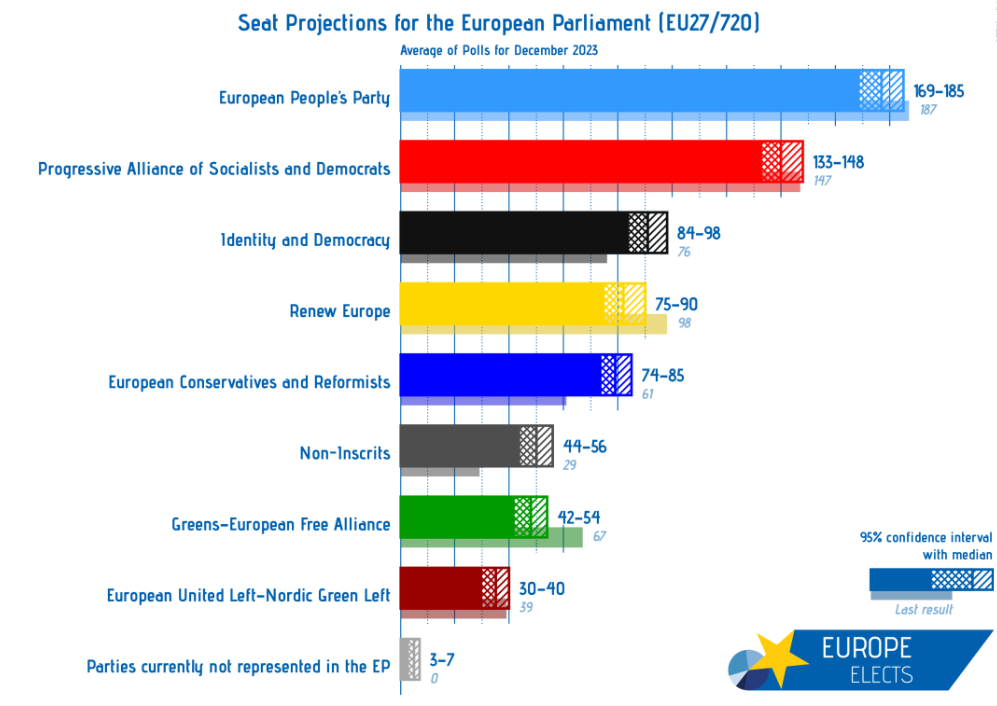
Behind these changes lie a number of developments in the individual national parties:
The main gains for the ID group came from two parties at opposite ends of the continent: In the Netherlands, the Partij voor de Vrijheid (PVV) continued to rise in the polls after its election victory and is now predicted to win two more seats, and in Romania, the new ID member Partidul S.O.S. Romania (S.O.S. RO) would gain two seats in the EU Parliament.
The RE group’s losses come from the same countries: The Dutch Volkspartij voor Vrijheid en Democratie (VVD) and the Romanian USR are both projected with two seats less than in November.
There is also a change in the EPP group, with the Dutch BoerBurgerBeweging (BBB) being now affiliated with the EPP and gaining two seats. The German Christian Democratic Union (CDU) also gains two seats, while the Polish Platforma Obywatelska (PO) of new Prime Minister Donald Tusk is projected to lose two seats.
The S&D group also has two changes of two seats: Germany’s Social Democratic Party of Germany (SPD) is predicted to lose two seats and Portugal‘s Partido Socialista (PS) is predicted to gain two.
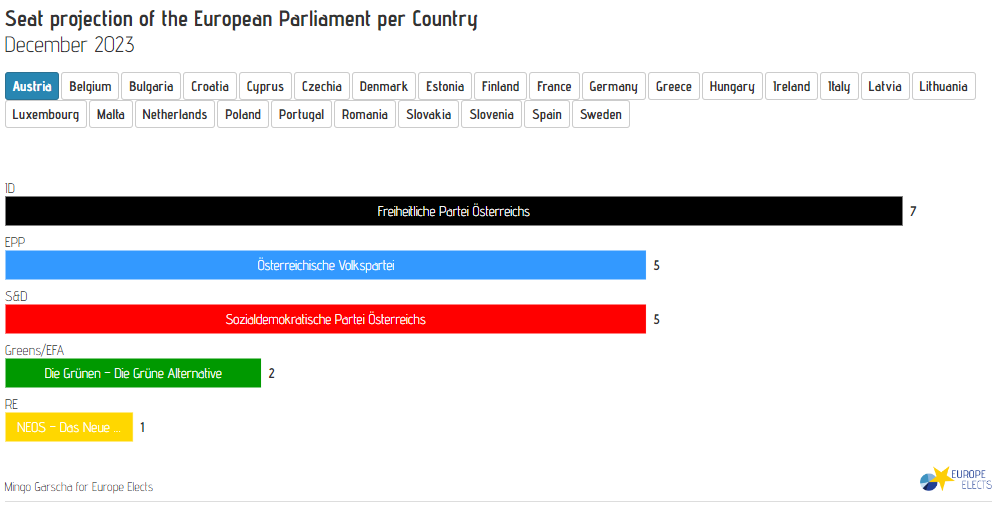
The projection of the popular vote for December also brings some interesting changes. The European People’s Party remains the largest group with 22.8%, an increase of 0.4 points compared to the previous month. The Progressive Alliance of Socialists and Democrats moves in the opposite direction and is now on 17.9%, a loss of half a point. Renew Europe suffered a more moderate loss than in the seat projection and is now at 10.4%, a minus of 0.3. Together, the three groups of the informal coalition have slightly reduced their share and continue to hold an absolute majority with 51.1%.
On the right of the political spectrum, Identity and Democracy gained 0.4 percentage points and is now at 12.1%, its highest level since February 2020. The European Conservatives and Reformists are also slightly up, at 11.1% (+0.1).
On the left, the Greens/European Free Alliance are down to 7% (?0.2), while the Left in the European Parliament – GUE/NGL is down by the same amount to 5.5%, its lowest level in this election period.
Non-Inscrits saw a slight increase this month to 6.2% (+0.1), similar to those who have not (yet) joined a political group at 6.9% (+0.2).
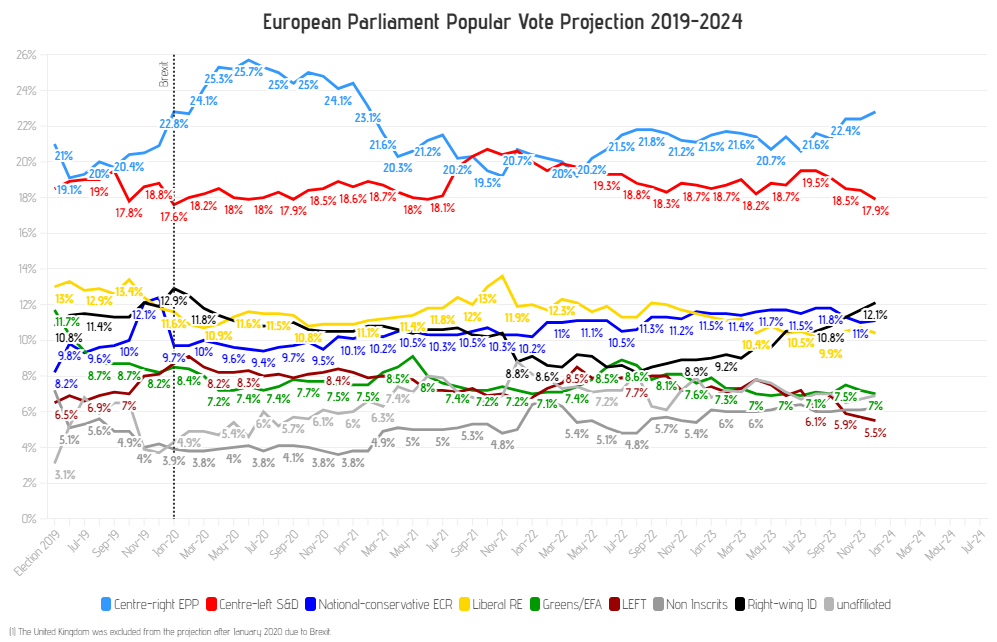
Looking at the current composition of the European Parliament, four new MEPs have joined: From Spain, Patricia Caro Maya and Esther Sanz Selva (both Podemos-LEFT) fill the seats vacated by their electoral alliances, as does Polish MEP Rafal Romanowski (PiS-ECR). In France, Francois Thiollet (EELV-G/EFA) replaces Michele Rivasi from the same party. Radoslaw Sikorski (PO-EPP) from Poland has left the European Parliament and has not yet been replaced.
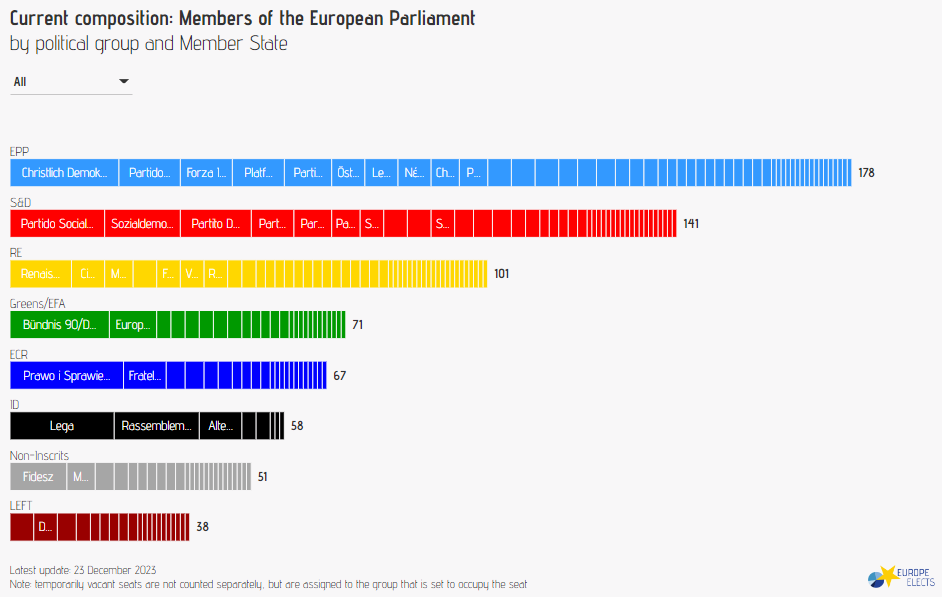
The composition of the European Council has also changed this month, with Donald Tusk (PO-EPP) leading the new Polish government. In the Netherlands, a government has not yet been formed, and it will need still some time until it is known who will be the next prime minister.
Looking ahead to the new year, there are many interesting elections coming up, the most prominent being the European Parliament elections on 6-9 June 2024. There is only one EU election scheduled for next month, the presidential election in Finland on 28 January. All election results and details of upcoming elections can be found in our Election Calendar.
*first published in: Europeelects.eu



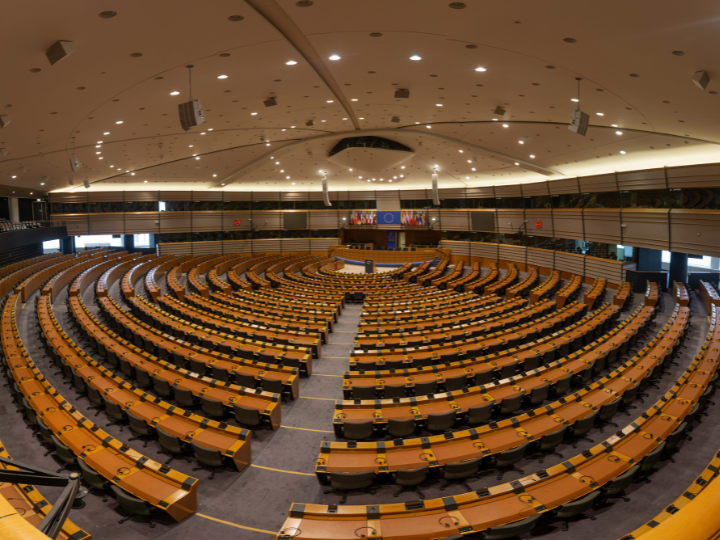
 By: N. Peter Kramer
By: N. Peter Kramer

